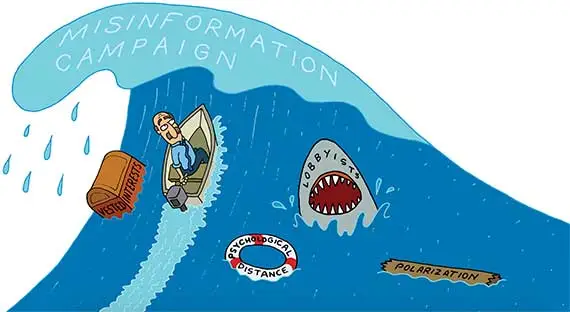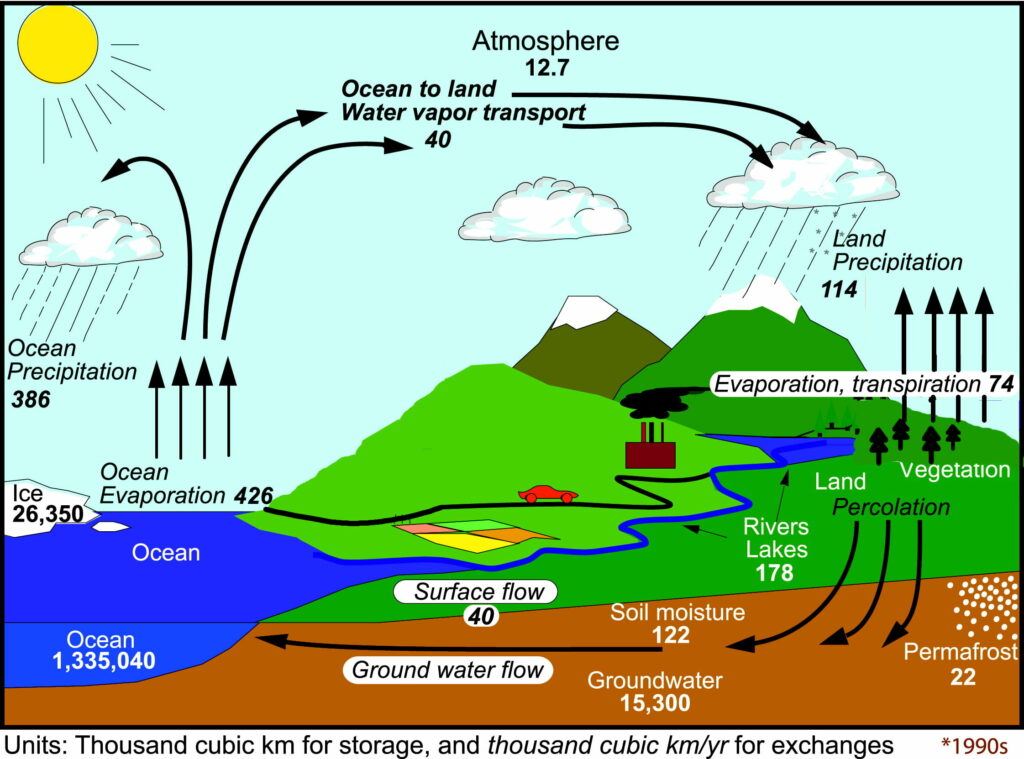The “Merchants of Doubt” in my title for today refers to a book of that name written by Erik M. Conway and Naomi Oreskes. Here’s a trailer for the film of the book:
Please note that if you watch the movie (or buy the book) via the link above we receive a small commission, which helps fund this web site and our own research into sewage pollution.
The question in the title has been prompted by this newly published “open access” academic paper in the learned journal “Nature Water”:
“Water industry strategies to manufacture doubt and deflect blame for sewage pollution in England“
The West Devon Free Press web site is obviously not an academic journal! However, Nature Water state that the article should be formally cited as:
Ford, A.T., Singer, A.C., Hammond, P. et al. Water industry strategies to manufacture doubt and deflect blame for sewage pollution in England. Nat Water (2025). https://doi.org/10.1038/s44221-024-00370-y
The lead author of the article is Alex Ford from the Institute of Marine Sciences at the University of Portsmouth. Here is a trailer for his work on sewage pollution in Langstone Harbour:
Note that the official citation seems rather hard on the fourth author, who is in fact Jamie Woodward from the Department of Geography at the University of Manchester!
Here is the abstract to Alex et al.’s Nature Water article:
The water and sewerage companies (WaSCs) in England are majority-owned by a range of global investors. The industry is under intense scrutiny for widespread failure in its environmental performance, discharging 12.7 million monitored hours of untreated wastewater and sewage into English waterways between 2019 and the end of 2023. At the time of writing, multiple investigations by environmental and financial regulators are in progress, and regulatory oversight is under review by the recently formed Office for Environmental Protection. While limited monitoring hid the full extent of underperformance, we argue that the WaSCs have prolonged this environmental disaster through strategies that mirror those of other large polluting industries in the past. We test this hypothesis for the nine major WaSCs in England against a published framework of 28 ‘greenwashing/deception’ tactics of large industries. We identified 22 of these tactics that could be seen as disinformation, greenwashing and manufacturing doubt. The financial exploitation of water resources in England, alongside long-term degradation of infrastructure and ineffective regulation, raises globally important issues around water security, ethics and environmental stewardship. Much greater scrutiny of both industry performance and industry communication is required.
The article also includes 86 references. “Merchants of Doubt” is number 3. Here’s how Alex et al. refer to it in their opening paragraph:
The disinformation playbook1,2 has been used by numerous industries to stymy regulation and litigation and maintain profits3,4,5,6. Researchers have reported commonalities between industries in how they and their sponsored lobbyists distract, delay and disrupt the spread of information1,2,5,6,7,8. Commercial success does not have to mean environmental degradation, but these strategies often arise owing to conflicts of interest9, tipping the balance in favour of profit margins over those of human and ecosystem health. When challenged on their environmental performance, polluting industries have been shown to employ tactics such as denial, disruption, distraction, distortion, deflection, casting doubt and ultimately delay through the impacts of this disinformation10,11.
Since we’re not an offshoot of Nature, here is a pertinent cartoon instead of a Excel spreadsheet on the topic of water “industry” disinformation:

It comes from the “How did climate change get so controversial?” article on the “Cranky Uncle” web site created by John Cook, who is a Senior Research Fellow at the University of Melbourne School of Psychological Sciences and founder of the “Skeptical Science” web site. Here is a recent learned journal article written by John and Naomi amongst others:
Ecker, U. K. H., Tay, L. Q., Roozenbeek, J., van der Linden, S., Cook, J., Oreskes, N., & Lewandowsky, S. (2024). Why misinformation must not be ignored.American Psychologist. Advance online publication. https://doi.org/10.1037/amp0001448
The abstract reads as follows:
Recent academic debate has seen the emergence of the claim that misinformation is not a significant societal problem. We argue that the arguments used to support this minimizing position are flawed, particularly if interpreted (e.g., by policymakers or the public) as suggesting that misinformation can be safely ignored. Here, we rebut the two main claims, namely that misinformation is not of substantive concern (a) due to its low incidence and (b) because it has no causal influence on notable political or behavioral outcomes. Through a critical review of the current literature, we demonstrate that (a) the prevalence of misinformation is nonnegligible if reasonably inclusive definitions are applied and that (b) misinformation has causal impacts on important beliefs and behaviors. Both scholars and policymakers should therefore continue to take misinformation seriously.
To conclude matters, for the moment at least, here’s an extract from a conversation I had with Feargal Sharkey on X (formerly Twitter) earlier today:
Thanks Feargal,
— West Devon Info 🌐 (@west_devon_info) January 28, 2025
That is some help, but I was rather hoping that somebody could point me at a document revealing how a UK court had already "interpret[ed] reasonably foreseen etc."
Do you suppose any judge has read the IPCC's AR6 WG1 report?
"The water cycle will intensify"
Since external links are frowned upon on X, here is a link to my reference. A more approachable version for the general reader can be found here:
“A plain-language summary of the IPCC Working Group I climate change report released in August 2021“
Here too is an infographic from the Royal Meteorological Society’s introduction to “the changing water cycle“:

When I have a spare moment I’ll publish the links to the assorted “statutory instruments” and “case law” discussed in my conversation with Feargal. I may even get around to discussing how Elon Musk’s new alleged “town square” is a primary source of disinformation about “climate change” and numerous other controversial topics!
Please feel free to comment in the space provided for that purpose below. Note that the first post by a new commenter is “moderated” and there may therefore be a delay before it is published on this web site.
To be continued…
I’ll start the ball rolling with an observation of my own.
Compare and contrast these two screenshots from South West Water’s “WaterFit Live” web site from our nearby surf break at Widemouth Bay:
Here’s the West Country overview map for the same dates:
Which colour scheme do you prefer?
Our Member of Parliament, Sir Geoffrey Cox KC, doesn’t seem to have commented publicly on last night’s House of Commons debate about the Water (Special Measures) Bill, but Steve Race, the new MP for Exeter, had this to say on (anti)social media this morning:
Sir Geoffrey Cox voted with the Liberal Democrats for two of the amendments/additions under discussion. On the other hand Steve Race (and Environment Secretary Steve Reed) voted against all of them. However Sir Geoffrey and most other Conservative MP’s appear to have abstained from the vote on Amendment 9: